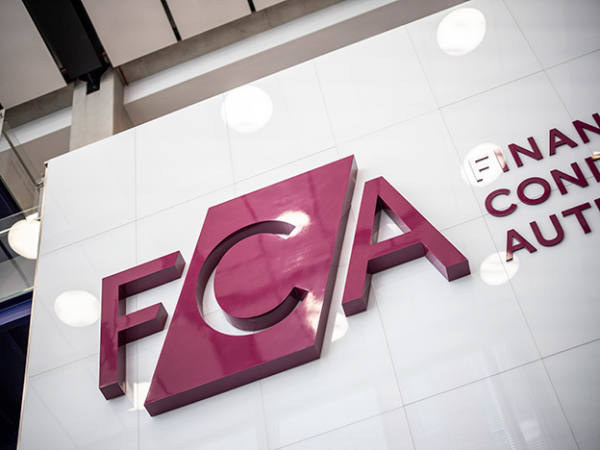- Beyond a recent Covid-19 bout, Vietnam has great growth prospects
- Vietnam Enterprise Investments is at an unusually wide discount despite strong NAV growth
In a world of loose monetary and fiscal policy, there aren’t many equities offering great growth potential at an attractive price – but investment trusts specialising in Vietnam are among the few.
While Vietnam’s stock market has had a strong recovery following the sell off last March, a recent bout of Covid-19 cases, which triggered further lockdowns, has led to Vietnam Enterprise Investments Limited (VEIL) swinging to an unusually wide discount despite strong net asset value (NAV) growth. On 20 August the trust was trading at a discount of 21.2 per cent, compared with an average 12-month discount of 11.9 per cent.
When the delta variant arrived in the frontier market in late April, Vietnam had recorded fewer than 3,000 Covid cases over the previous 15 months. However, by August, more than 10,000 cases were being recorded daily. While the outlook is still difficult, there are reasons to be positive. Vaccines are now being administered at a frantic pace and we are starting to see the daily case numbers coming down, having peaked earlier this month.
And despite the recent surge in Covid-19 cases, profits at Vietnamese companies are expected to grow 11 per cent next year and 18 per cent the following year, according to Bloomberg consensus. The corresponding figures for MSCI AC Asia ex Japan are 7 per cent and 12 per cent.
Mick Gilligan, head of managed portfolio services at Killik and Co, thinks that Vietnam looks attractive, with MSCI Vietnam trading on a price-to-book ratio of 3.7 times. This is above its long-term average of 3.1 times, but not excessively so. The long-term range is 1.8 times to 6.3 times.
For patient investors, Vietnam has great fundamentals. With a young, enterprising and large workforce, the Asian Development Bank currently forecasts that Vietnam’s gross domestic product (GDP) will grow at 5.8 per cent this year, down from a 6.7 per cent prediction earlier in the year. This still makes for one of the fastest-growing economies in the world.
And as rising tensions between the West and China have been escalated by the pandemic, companies are increasingly diversifying supply chains. Vietnam has been a notable beneficiary. A flipside to having China as a neighbour, however, is the potential for aggression in the South China Sea, which would be likely to lead to sell-offs in equities right across in the region.
Vietnam Enterprise Investments' portfolio
VEIL is the largest of the three London-listed Vietnam investment trusts, and it also has the best share price performance over the past three and five years. The trust, which has net assets of £1.8bn, seeks long-term growth and outperformance of the VN Index on a rolling three-year basis.
At almost 14 per cent of the portfolio, the largest holding in the trust is Hoa Phat, a leader in the country's construction and steel pipe industry. Despite a setback since June as Covid restrictions increased, the company's share price is up 60 per cent over the past year. The manager expects the stock to continue to be buoyed by the Vietnam government’s commitment to investing in the country’s infrastructure.
The trust’s largest sector allocation is in banking, which makes up almost two-fifths of the portfolio. As the country develops and the middle classes prosper, commercial banks, consumer finance firms, fintech and payment service companies are central to fuelling economic growth. So far this year, most Vietnamese banks held in the trust have shot the lights out. The two biggest holdings, Asia Commercial Bank and VP Bank, which each account for 11 per cent of the portfolio, have delivered 12-month gains of 90 per cent and 160 per cent, respectively. Other top 10 holdings, Techcombank and Vietcombank, meanwhile, are up 130 per cent and 13 per cent.
In the trust’s latest annual report the managers said 2020 provided a “litmus test” for Vietnam’s banking sector, with the pandemic emphasising the difference between good and bad banks. They add that all VEIL’s banking holdings are top tier, considerably outperforming the country’s wider sector.
The trust’s second-largest sector allocation is real estate, which has benefitted from the gradual ramping up of infrastructure spending, unlocking the value of developers' landbanks. The trust made some strategic exits in the real estate sector last year, locking in gains, but one area the managers are particularly keen on is the industrial park sector.
Despite a recent setback, Vietnam’s Covid containment policies earned international recognition, reinforcing the production shift from other countries, and especially China, to Vietnam. Leasing rates increased significantly as demand for industrial parks rose. Becamex IDC (BCM), a holding in the trust, is a major player in the sector and is favourably positioned to benefit from this growing trend with more than 1,100 hectares of land bank. BCM was originally a state-owned enterprise but was privatised and then listed in 2017.
The trust has relatively low exposure to consumer and retail sectors, which has helped its relative performance as the country has grappled with the latest Covid-19 restrictions. One company it does have in the retail sector, Mobile World Group, has continued to perform well, delivering sales growth of 6 per cent last year and year-to-date share price growth of 38 per cent as its consumer electronics and grocery chain businesses have expanded. Luxury goods maker PNJ experienced a tougher impact, with its bottom line falling 10 per cent last year, but the managers believe the company remains well-placed to benefit from the consumption trends of the growing middle classes in Vietnam.
While the trust has quite high fees, they have recently been reduced. From 1 July the management fee is 1.85 per cent per year for the first $1.25bn of the trust’s NAV, gradually reducing to 1.5 per cent for assets above $1.5bn. The trust also has an ‘ESG Management System’ to screen out companies that perform poorly on environmental, social and governance standards. Its exposure to carbon-intensive companies is significantly below the MSCI Emerging Markets Index.
Vietnam Enterprise Investments vs alternatives
VEIL does not pay a dividend, unlike its rival, Vietnam Opportunity (VOF), which has a dividend yield of 2.3 per cent. But the main difference between the two trusts is that VEIL has lower exposure to private companies. VOF has over a fifth in unlisted equity, which the managers say helps them to capture growth early and helps bring companies to market.
However, Gilligan says “we understand that some of VOF’s non-listed exposure are legacy positions owned prior to the fund moving on to the London market and we are not clear what the catalyst is for this to add value”. VEIL does invest in some private companies, particularly ahead of IPO, but has a self-imposed limit of 15 per cent of the NAV.
Vietnam-focused ETFs, such as Xtrackers FTSE Vietnam UCITS ETF (XVTD), present a problematic choice for investors. Foreign ownership restrictions and low liquidity mean they are not able to track the underlying index properly.
A difficulty for investors is that there aren’t many companies listed in Vietnam that are liquid and open to foreign ownership. There are also two tranches of shares for trading and foreign shares can trade at a significant premium. There is talk of reductions in the number of industries with a statutory foreign ownership limit and the provision of a non-voting depositary receipt that allows foreigners to have all shareholder rights, other than voting rights, without holding underlying shares. If made, both of these changes would likely boost some Vietnamese stocks.
And if Vietnam enters the MSCI Emerging Markets Index, as some experts believe will happen within the next couple of years, this will attract more money to the market, which should boost prices.
The outlook for Vietnam is still uncertain as it is not out of the woods with the recent surge in Covid cases. However, the long-term outlook for the country is attractive and a discount of 21 per cent provides a rare opportunity to invest in VEIL at such a bargain price. The board has also been regularly buying back shares in recent months which should help prevent the discount getting too much wider. Buy. MM
| Fund name and ISIN | Vietnam Enterprise Investments (VEIL) | ||
| Price | 675p | Gearing | 0% |
| AIC sector | Country specialist | NAV | 856p |
| Fund type | Investment trust | Price discount to NAV | -21.20% |
| Market cap | £1.447bn | Ongoing charge* | 2.19% (30.06.20) |
| Set-up date* | 5/7/2016 | Yield | nil |
| Source: Winterflood 20.08.21 *AIC | More details | www.veil-dragoncapital.com |
| Performance (%) | |||
|---|---|---|---|
| Fund/benchmark | 1 year total return | 3 year cumulative total return | 5 year cumulative total return |
| Vietnam Enterprise price | 60 | 56 | 139 |
| Vietnam Enterprise NAV | 83 | 64 | n/a |
| VN Index | 55 | 32 | 97 |
| Source: FE Analytics, 20.08.21 | |||
| Top 10 holdings (%) | |
|---|---|
| Hoa Phat | 13.74 |
| ACB | 11.12 |
| VPBank | 11.05 |
| Mobile World | 8.27 |
| Vingroup | 6.90 |
| Vietcombank | 6.64 |
| Vinhomes | 5.74 |
| FPT | 5.62 |
| Novaland | 4.51 |
| Techcombank | 4.05 |
| Source: VEIL factsheet, 30 July 2021 | |
| Sector breakdown (%) | |
|---|---|
| Banks | 38.65 |
| Real estate | 26.07 |
| Mat's/Res | 13.74 |
| Retail | 8.70 |
| Cash & equivalents | 5.78 |
| Software / Svc's | 5.62 |
| Consumer durables | 1.92 |
| Capital goods | 1.37 |
| Transportation | 0.88 |
| Energy | 0.82 |
| Brokers | 0.80 |
| F&B | 0.70 |
| Source: VEIL factsheet, 30 July 2021 | |







